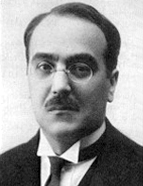

In 1919, by now a figure of academic renown, his appointment at the Faculty of Letters in Porto was unanimously approved. This was also the case in 1922, when he was appointed professor at the Escola Normal Superior in Lisbon. In 1920, he made his first trip to Brazil as a speaker, taking up his position as honorary professor at the Faculty of Philosophy and Letters in Rio de Janeiro and as a corresponding member of the Brazilian Historical and Geographical Institute.
Between 1921 and 1925, he ran as candidate for assemblyman for the Monarchist Cause in the Lisbon constituency on three occasions. In open opposition to the republican regime, he defended political solutions from the nationalist right, in particular the establishment of a strong regime, with a charismatic leadership, taking Sidonism as a model. It was also in this context that he assumed direction of the journals Portugália - Revista de Tradição, Cultura e Renovação Nacional [Portugália-Journal of Tradition, Culture and National Renewal] (1925-1926), agency of the Conservative Monarchist Youth, and Vasco da Gama (1925-1927).
After May 28, 1926, and in view of the military's inability to resolve the political situation, on August 12, 1927, Fidelino took part in the "Fifis" coup and was subsequently arrested and deported to Angola. That was the end of his active participation in politics. Having managed to escape during the journey, he took refuge in Spain until 1929-30. He taught at the Faculty of Philosophy and Letters at the University of Madrid, wrote for the newspaper El Debate and was a correspondent for the Diário de Pernambuco.
On the strength of his international prestige as an intellectual he gave a conference at the Ibero-American Institute in Prague in 1929 by invitation of the government, and taught at the National Autonomous University of Mexico in 1931, at the University of Berkeley - California (1931-32 and 1936-37) and at the Universities of São Paulo (1938-39 and 1941-51) and Rio de Janeiro - University of Brazil (1939-41). In recognition of his Hispanophilia, he was elected Honorary Member of the American Association of Teachers of Spanish in 1953.
As a speaker and essayist, his life was spent in Portugal, Spain, the United States, Mexico, Argentina and particularly Brazil, where he lived a considerable part of his life. These experiences are reflected in his works, especially in the variety of subjects covered, ranging from History to Literature, Literary Criticism to Cinema, Music and Journalism.
In 1951 he was diagnosed with a neurovascular health problem, forcing him to return to Portugal where he died in 1967.
